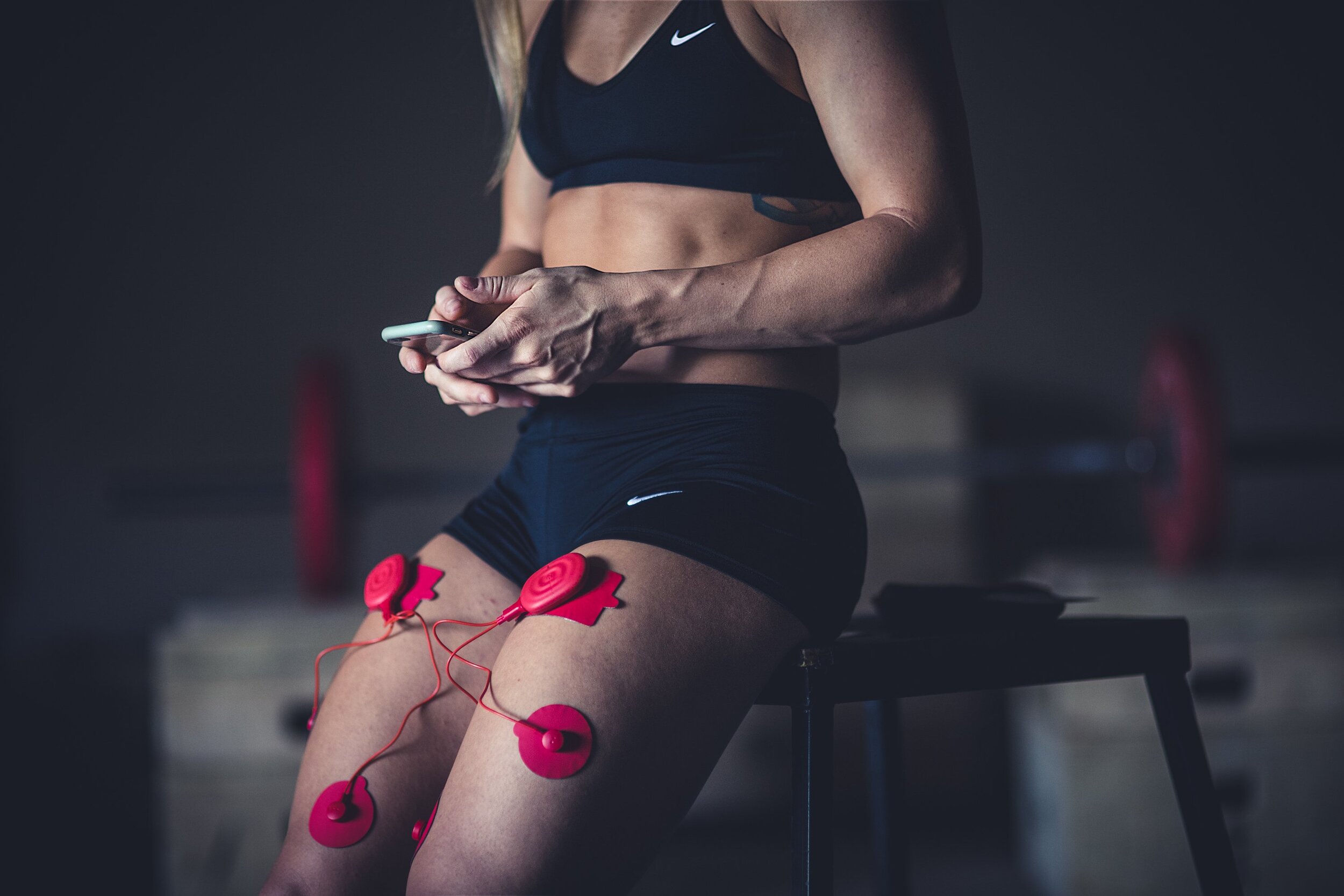Pathway-specific modulatory effects of neuromuscular electrical stimulation during pedaling in chronic stroke survivors, Journal of NeuroEngineering and Rehabilitation
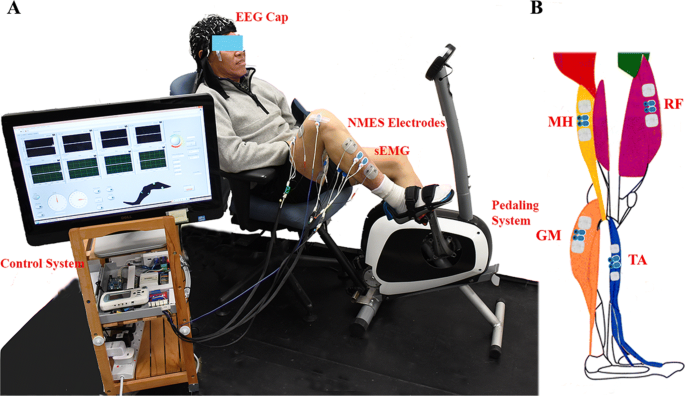
Pathway-specific modulatory effects of neuromuscular electrical stimulation during pedaling in chronic stroke survivors, Journal of NeuroEngineering and Rehabilitation
Background Neuromuscular electrical stimulation (NMES) is extensively used in stroke motor rehabilitation. How it promotes motor recovery remains only partially understood. NMES could change muscular properties, produce altered sensory inputs, and modulate fluctuations of cortical activities; but the potential contribution from cortico-muscular couplings during NMES synchronized with dynamic movement has rarely been discussed. Method We investigated cortico-muscular interactions during passive, active, and NMES rhythmic pedaling in healthy subjects and chronic stroke survivors. EEG (128 channels), EMG (4 unilateral lower limb muscles) and movement parameters were measured during 3 sessions of constant-speed pedaling. Sensory-level NMES (20 mA) was applied to the muscles, and cyclic stimulation patterns were synchronized with the EMG during pedaling cycles. Adaptive mixture independent component analysis was utilized to determine the movement-related electro-cortical sources and the source dipole clusters. A directed cortico-muscular coupling analysis was conducted between representative source clusters and the EMGs using generalized partial directed coherence (GPDC). The bidirectional GPDC was compared across muscles and pedaling sessions for post-stroke and healthy subjects. Results Directed cortico-muscular coupling of NMES cycling was more similar to that of active pedaling than to that of passive pedaling for the tested muscles. For healthy subjects, sensory-level NMES could modulate GPDC of both ascending and descending pathways. Whereas for stroke survivors, NMES could modulate GPDC of only the ascending pathways. Conclusions By clarifying how NMES influences neuromuscular control during pedaling in healthy and post-stroke subjects, our results indicate the potential limitation of sensory-level NMES in promoting sensorimotor recovery in chronic stroke survivors.

Journal of NeuroEngineering and Rehabilitation 1/2019
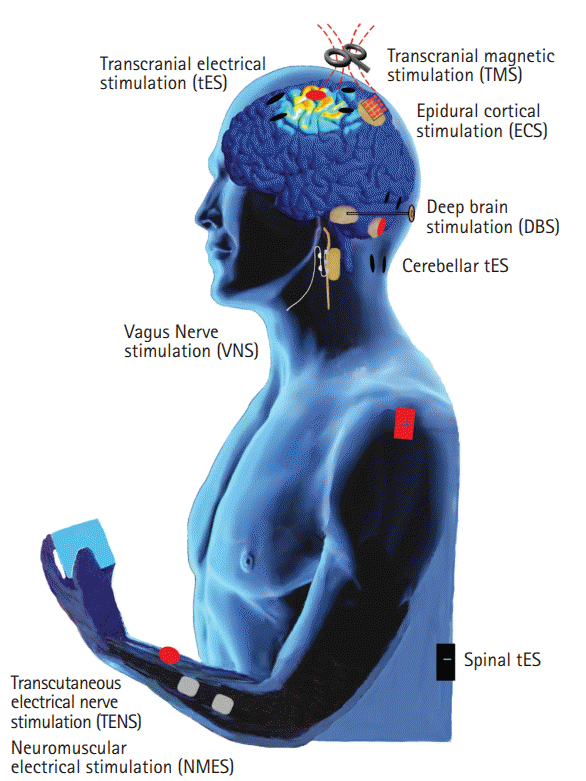
Journal of Stroke
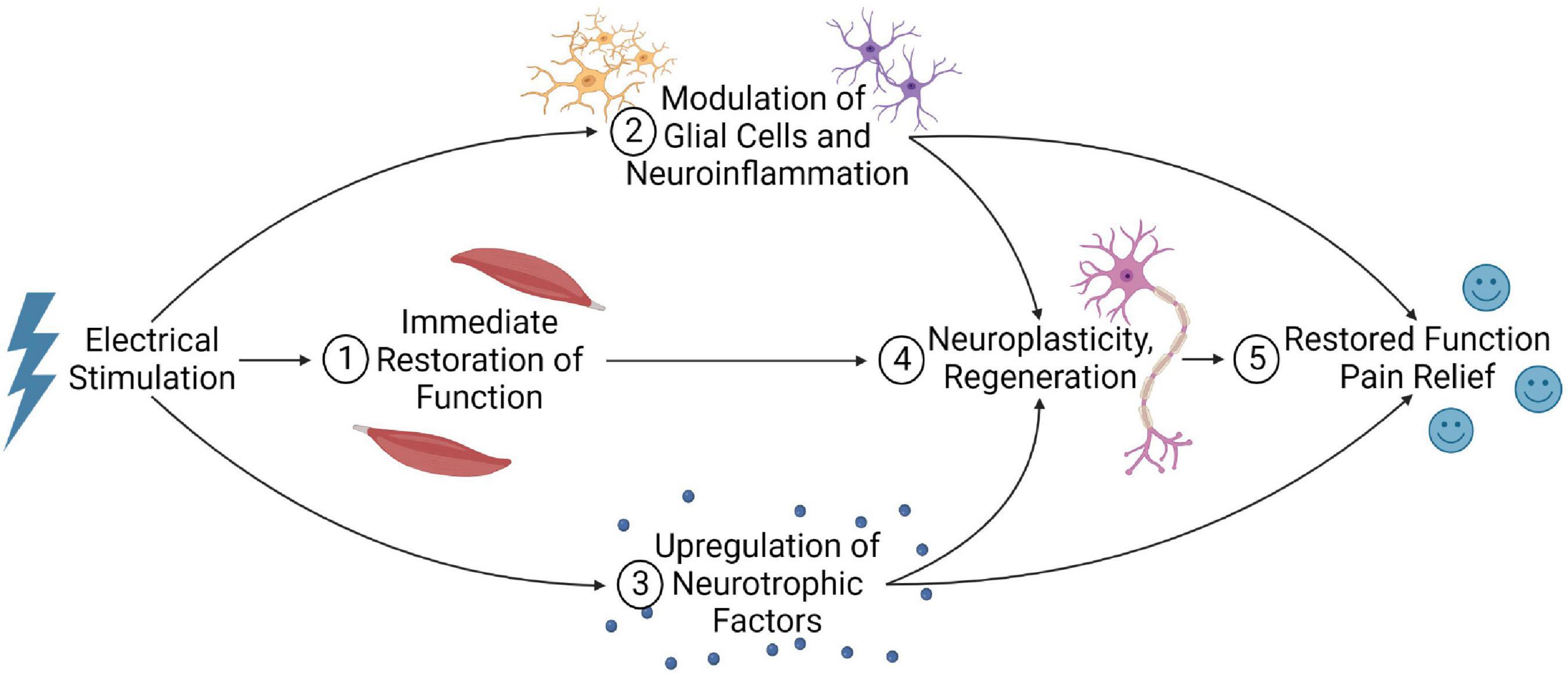
Frontiers Electrical stimulation for the treatment of spinal cord injuries: A review of the cellular and molecular mechanisms that drive functional improvements

/cms/10.1152/jn.00570.2017/

Sensors, Free Full-Text

Loop Shi-Chun Bao
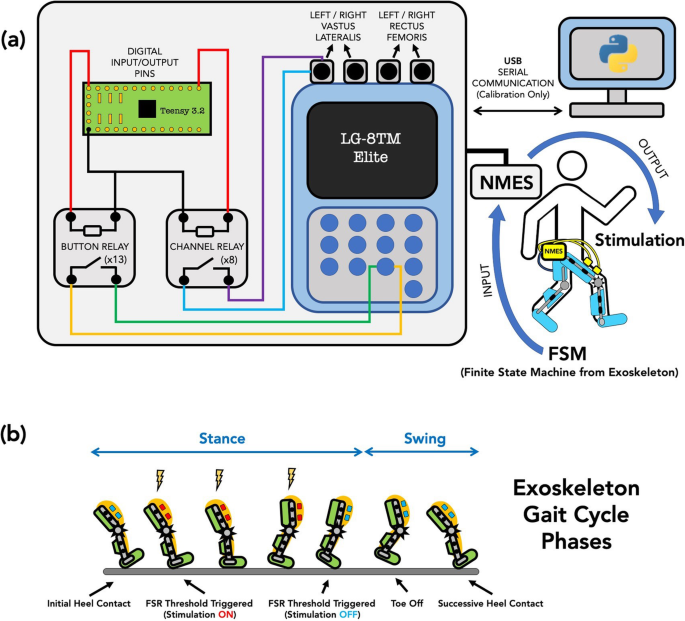
Toward a hybrid exoskeleton for crouch gait in children with cerebral palsy: neuromuscular electrical stimulation for improved knee extension, Journal of NeuroEngineering and Rehabilitation

PDF) Cycling induced by functional electrical stimulation in children affected by cerebral palsy: Case report

Robotic-Assisted Gait for lower-limb Rehabilitation: Evidence of Altered Neural Mechanisms in Stroke

Brain-controlled modulation of spinal circuits improves recovery from spinal cord injury

Robotic-Assisted Gait for lower-limb Rehabilitation: Evidence of Altered Neural Mechanisms in Stroke
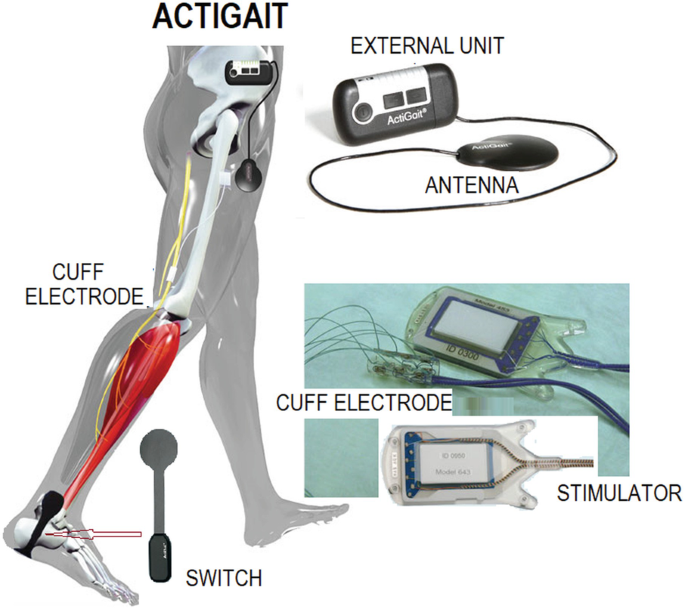
Neuroprosthesis and Functional Electrical Stimulation (Peripheral)

Standard early rehabilitation and lower limb transcutaneous nerve or neuromuscular electrical stimulation in acute stroke patients: a randomized controlled pilot study - Hsiao-Ching Yen, Wen-Shiang Chen, Jiann-Shing Jeng, Jer-Junn Luh, Ya-Yun Lee
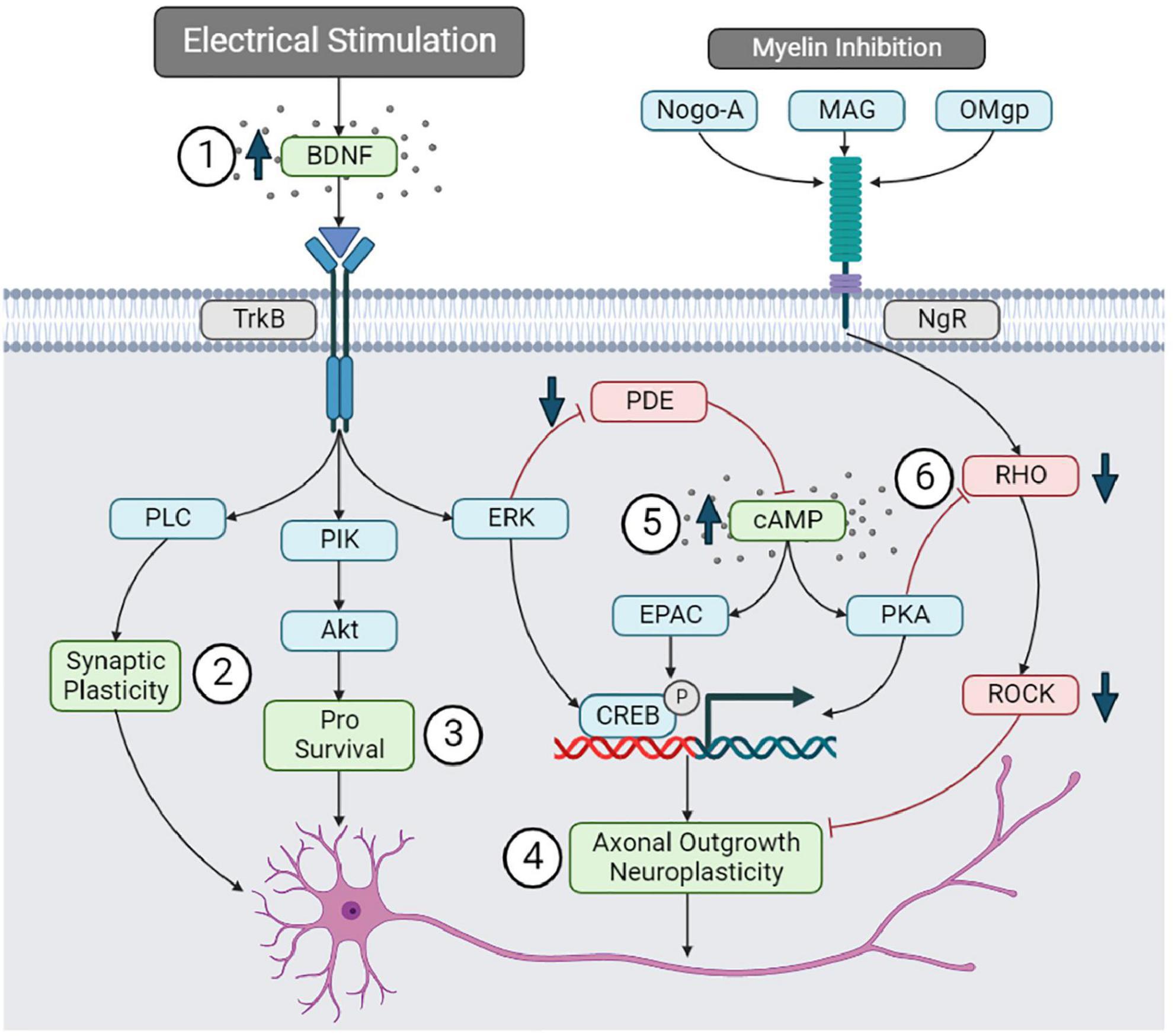
Frontiers Electrical stimulation for the treatment of spinal cord injuries: A review of the cellular and molecular mechanisms that drive functional improvements


